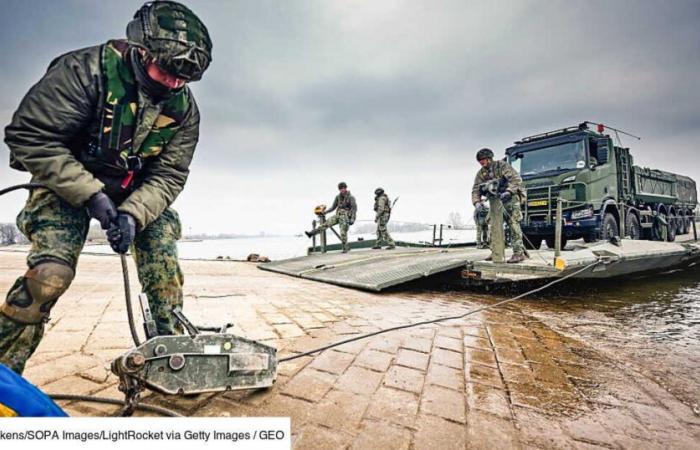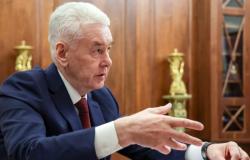While Moscow intensifies its attacks in Ukraine, targeting in particular the regions of Soumy and Donetsk with drones, a revelation of Newsweek Throws a cold: Russia could prepare a direct climbing against NATO. Despite the recent declarations of appeasement by Donald Trump, Western military analysts are alarmed by Russian preparations for a future confrontation with the Atlantic Alliance.
Ukraine, a candidate for membership since 2022, cannot join the Alliance as long as the war continues. However, NATO – already weakened by the threat of an American withdrawal – claims to support “fully kyiv in his right to self -defense” (NATO). A clear message, which has obviously not escaped the Kremlin.
Russia military preparations for Western borders
Russia “Progress discreetly in other places from its border with Europe”reported the Wall Street Journal on April 27.
Thus, Moscow would have strengthened its military presence along its borders, especially in the east of Finland. In Petrozavodsk, a Russian city near the Finnish border, a new headquarters has been established in order to “Supervise tens of thousands of soldiers”. This reorganization testifies to an assumed will to prepare a potential confrontation with the Atlantic Alliance, within the framework of a long -term strategy. Satellite shots, captured by the Black Bird Group Center, have confirmed the magnitude of this deployment. Further north, on the basis of Sputnik (close to Norway), images reveal “Huge storage hangars for military equipment”.
This strengthening extends beyond border areas with Finland. New infrastructure would be under construction along the Norwegian and Finnish borders, but also south of Saint Petersburg, towards Estonia, according to International mail. These movements are accompanied by a broader dynamic, marked by an increase in military recruitment and an intensification of armament production. So many indicators that confirm that Russia methodically prepares a lasting confrontation posture with the West.
Western intelligence services alert
In recent months, several European intelligence services – notably Germany, Lithuania and Denmark – have estimated that Moscow is preparing for a conflict that would spread out “Beyond Ukraine”.
According to Copenhagen, Putin would need “Only six months to launch a new attack on a European border country in Russia, and five years for a large-scale war on the American continent-in the event that the United States of Donald Trump does not provide their support” (The great continent). If BND (Germany) provides for a possible conventional war with NATO by 2030, Lithuania evokes a potential limited attack to test the reaction of NATO.
Towards an extreme remillitarization of Moscow
Moscow, who has placed all his economy in a war effort, turned into real “Warrior State”. On the one hand by massively redirecting its economy to manufacturing industry and armament production, accompanied by a significant increase in defense expenses. The military budget could reach 120 billion euros in 2025, or more than 6% of Russian GDP (the big conversation). Russia now surpasses Europe in terms of military spending.
In addition, since the start of the Russian invasion, the partial mobilization of September 2022 has called around 300,000 reservists; While the stated objective is to bring the military staff to 1.5 million by 2026.
An increase in sabotage acts
The concerns grow in the face of the intensification of Russian activities around sensitive infrastructure, in particular underwater cables, true arteries of global communication. Suspicious incidents, such as the prolonged presence of a spy ship near these strategic facilities, feed fears of Western intelligence services. According to recent reports, the number of sabotage assigned to Russia in Europe would have tripled between 2023 and 2024. An escalation which confirms the warnings of the CSIS: Moscow represents a “Serious and growing threat” for the United States and its allies.
Faced with this increasing shadow war, NATO strengthens its surveillance, but the question remains: how to counter an increasingly aggressive Russian strategy, without causing an open escalation? NATO secretary general, Mark Rutte, promises an answer “Devastator” in the event of a Russian attack on a member country. The coming months could be decisive.








